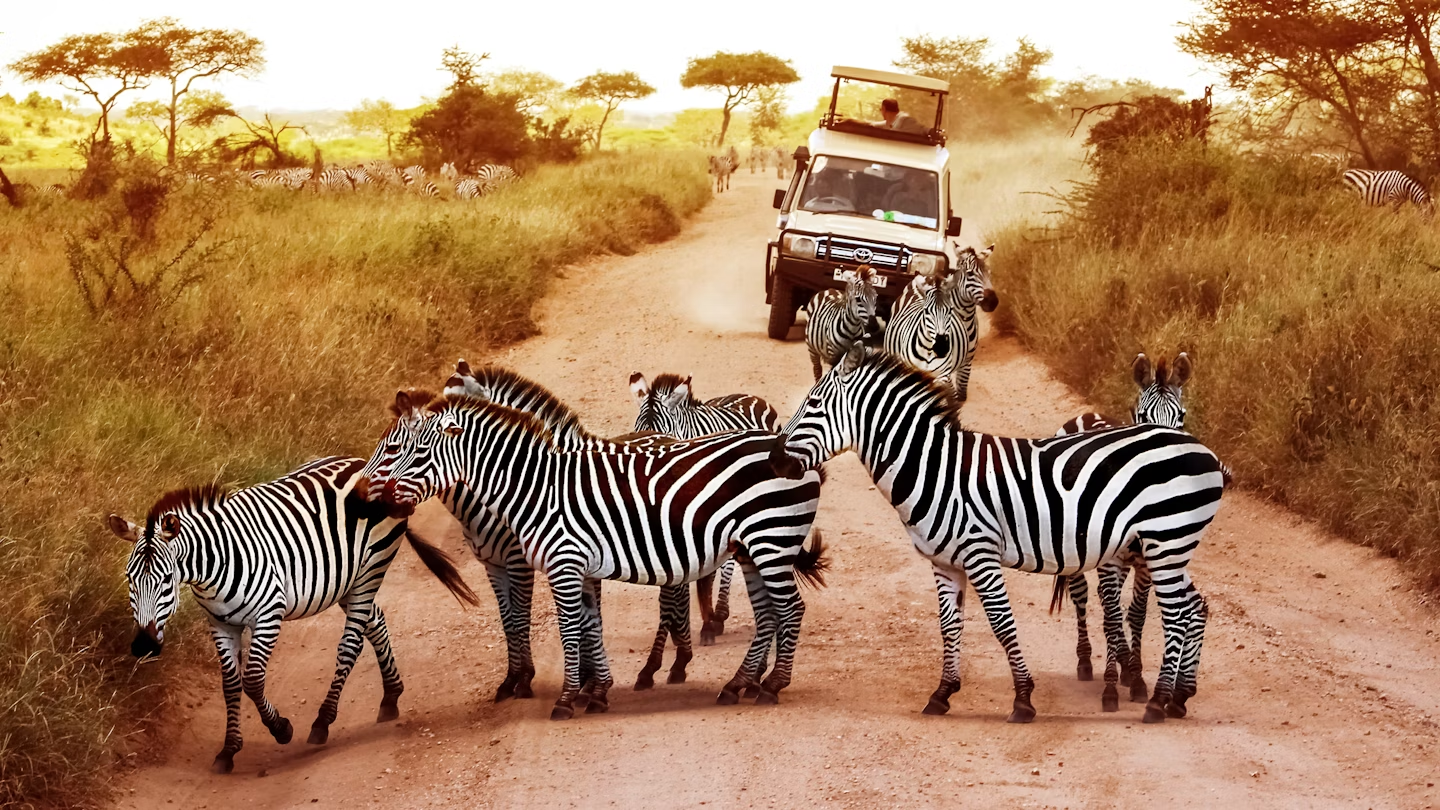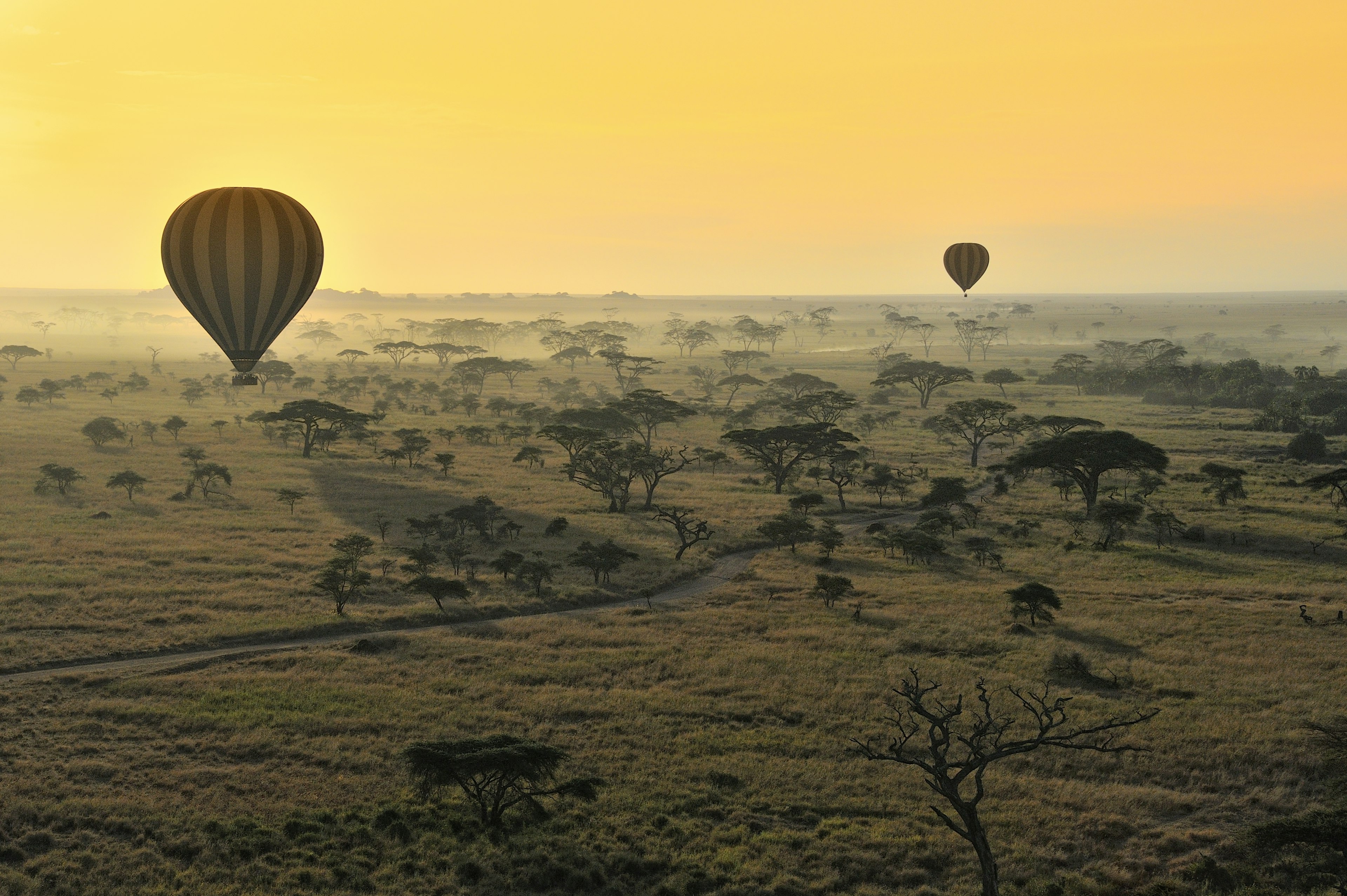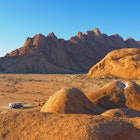
May 13, 2020 • 3 min read

Mar 29, 2023 • 5 min read

Experience the best of Tanzania with Elsewhere by Lonely Planet © Delbars / Getty Images
Planning a safari can be a very intimidating experience. The amount of time and money required to make it happen, as well as never being entirely certain that you’re using the best operator, are just a recipe for uncertainty and anxiety.
Shed all doubt by planning a safari trip in Tanzania with Elsewhere by Lonely Planet. Our Tanzania-based experts, Denise Brown and Robert Tarimo, make it their business to create responsible, impactful and meaningful adventures.
This powerhouse duo prioritizes local immersion beyond the requisite game drives. Their mission is to create a long-lasting, positive impact on their local communities while giving their guests a one-of-a-kind, unforgettable safari experience. And the money you spend traveling with them actually stays in Tanzania, so you can alleviate any concerns about choosing a responsible safari operator.
Read on to get a taste of Robert and Denise's Tanzanian safaris, and stick around for a quick chat with Denise.
Learn more about booking a trip to Tanzania with Elsewhere by Lonely Planet.

Denise and Robert craft unique itineraries for each of their guests and you can work with them to create your own unforgettable safari adventure, capped off with a stunning and relaxing respite on the beach. Here are some must-dos from one of their Tanzania safaris.
A Maasai (a local, Indigenous guide) will lead you on a nature walk through Maasailand, providing a quiet-yet-up-close perspective on the surrounding landscape.
Lake Masek Tented Lodge in the Ndutu Plains is a perfect spot to observe the wildlife of the Southern Serengeti. The lodge runs on solar electricity and uses rainwater.
Through a partnership with NGO Solar Sister, visit a Maasai village to meet with and distribute solar lamps to a family without electricity.

The Central Serengeti forms part of the great wildebeest and zebra migration and provides an ideal habitat for a variety of wildlife such as giraffes, hippos, elephants, lions and much more.
A hot-air balloon ride feels like a safari in the sky. Seeing the vast Serengeti from on high is a thrill beyond description.
After many days exploring the Serengeti, retreat to Zanzibar to sample local cuisine and chill out on Paje Beach, one of the archipelago’s best.
Let Elsewhere experts plan your trip to Tanzania.

Get to know Denise, Elsewhere’s in-destination expert, and learn more about her life and work in Tanzania.
Robert was my guide on my very first trip to Tanzania, and we stayed in touch. We had so many ideas about how we could improve the safari industry by offering visitors meaningful experiences that not only leave a lasting positive impact on the guests but also on the local communities. That is how we started our business. When COVID ravaged the world, I decided to leave everything behind in New York and finally move to live in Arusha full time.
Most people come for the animals – which is understandable. However many of our guests fall in love with the Tanzanian people. They are warm and welcoming, proud of their country and happy to show it to you. Plus, Tanzania is home to over 120 different tribes living peacefully side by side. This area is where we all came from. Olduvai Gorge (in the eastern Serengeti Plain) is where some of humanity's earliest ancestors were found.

When we first started distributing solar lights with our guests in the Mto wa Mbu area, we imported the lights from the US but we wanted to purchase them from within the country, so we found Solar Sister. It is a win-win for everyone involved. We have added water filters this year as well and are working with Wine to Water to distribute them.
Food on a safari is not super exotic. Most lodges and camps cater to the Western palate. You usually get served rice or pasta with fresh vegetables and some meat or fish, fresh fruits. Some camps throw in a taste of local food like ugali (maize flour polenta), makande (corn and bean meal) or mandazi (deep fried dough). If you go to Zanzibar, the food there is more eclectic. Its cuisine has Indian, European and Middle Eastern influences.
It helps to know a few words in Swahili – the locals love it when you speak a bit of Swahili with them. Mainland Tanzania is mainly Christian, Zanzibar is predominantly Muslim, so you should dress appropriately when exploring the island.
I cannot make out one specific moment; there have been so many moments that made me pause and forget everything around me… or that made me cry happy tears. Especially in the last few years, when the world has seemed to fall apart, spending time in Tanzania completely changed my perspective on life. People here focus on essential things, they don’t worry about mundane issues that people in the Western world fight over on a daily basis. There is a broader sense of community here. You rely on each other.
When you come to Tanzania with an open heart and mind, you will be moved in ways you cannot imagine. Having the right perspective is essential for your experience. The transportation for instance: the roads here are often rough and unpaved. Bush planes don’t always run exactly on schedule. And wireless internet may not always be always available at your lodge. The culture here is laid-back and unhurried – not a pace most of us are used to, but give Africa time, and it will seep into your soul and change you.

National Parks
Protecting rhinos from poachers in Africa - what it's like working on the frontlineAug 23, 2022 • 10 min read

May 13, 2020 • 3 min read







